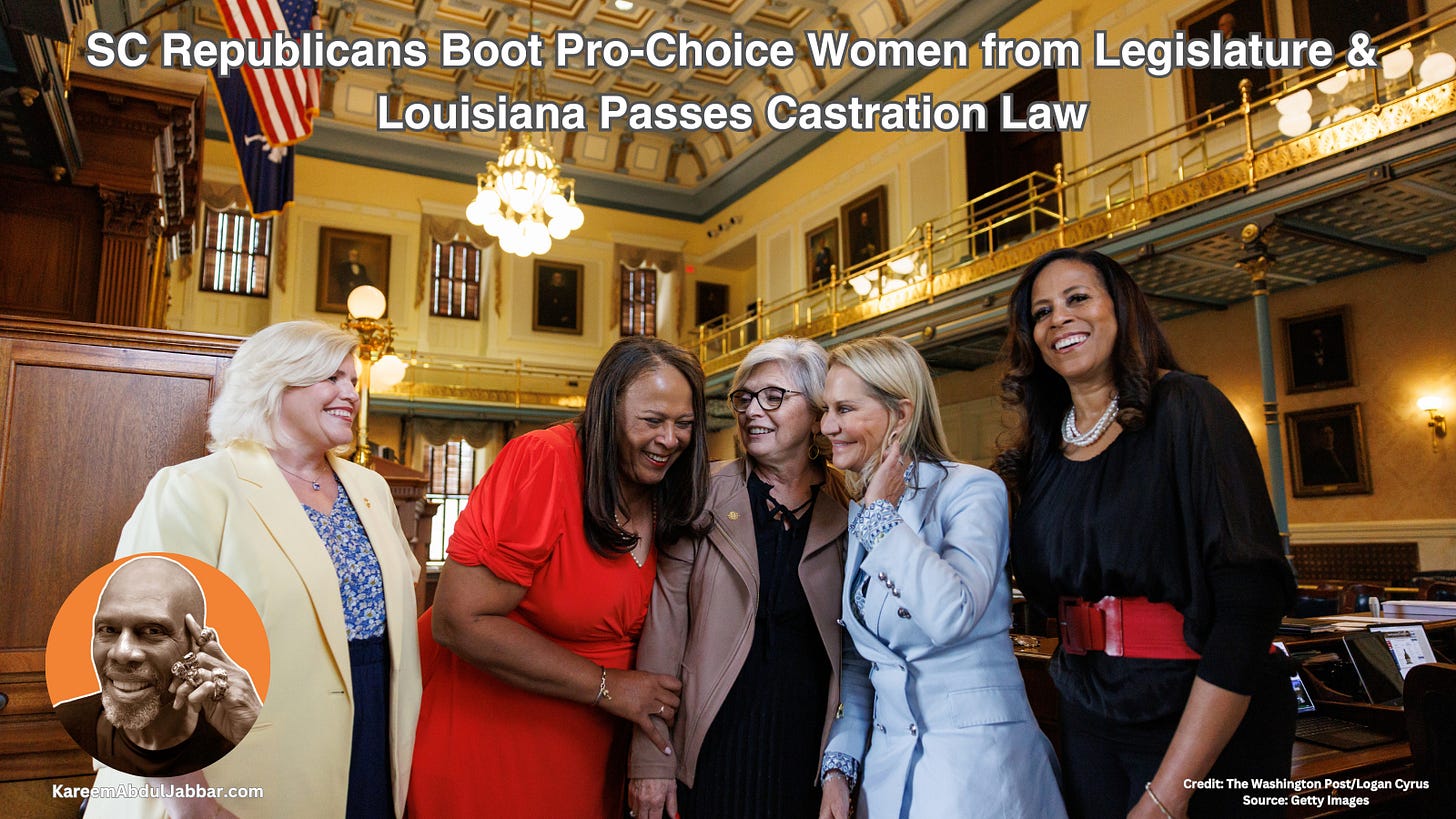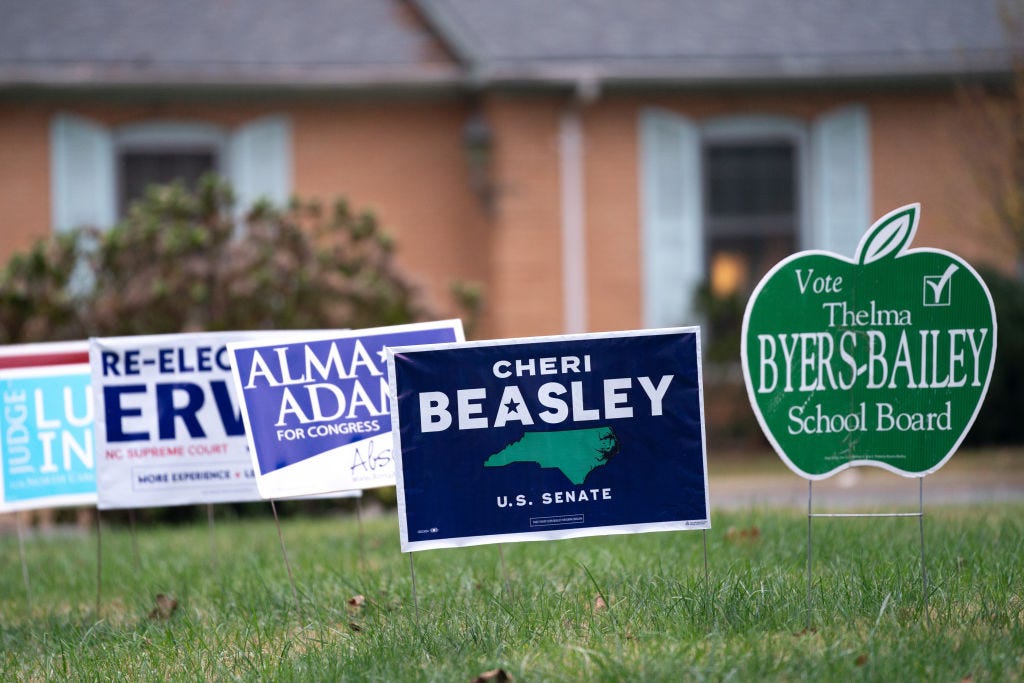What I’m Discussing Today:
Kareem’s Daily Quote: It’s okay to make mistakes as long as your reasoning is solid. If it isn’t, you’ll just keep making the same mistakes.
Voters kick all the Republican women out of the South Carolina Senate: South Carolina has just proven just how hostile it is to women (even though they make up 54% of the state).
What to know about Louisiana's new surgical castration law: Why pass such a harsh law when there is no evidence that it will work? To trick voters, of course.
Kareem’s Video Break: Baby elephants make me happy. I don’t have to justify that.
That job you applied for might not exist. Here's what's behind a boom in "ghost jobs.": Companies post ads for non-existent jobs to intimidate their employees. I’ll be shopping elsewhere.
What I’m Watching—Movies & TV: The Bikeriders, Kinds of Kindness, The Watcher, and A Quiet Place: Day One get scrutinized. Only one of them is worth watching.
The Incredible String Band Sings “The Hedgehog’s Song”: Yes, there is a singing hedgehog in this song. The band’s unique sound is refreshing.
Kareem’s Daily Quote
It is wrong always, everywhere and for everyone, to believe anything upon insufficient evidence.
W. K. Clifford (1845-1879), British mathematician and philosopher
For the past year, I’ve been reading articles about how much money the presidential candidates are raising. The latest mentioned that Trump had recently raised $300 million. From 1984 to 2024, Statista reports that the two major parties spent almost $4 trillion on presidential campaigns. My reaction: The amount is obscene because of what they spend it on. Sure, some is spent getting the vote out, but a majority is for ads that tell voters to vote for them.
There’s very little substance to these ads, just patriotic rhetoric, promises, and personal attacks on their opponents. Their mere existence is insulting to the country because they assume that Americans make their decisions about the future of our country—about their futures and that of their families—based on flashy ads without evidence. The theory is the same as those awful lawn posters that appear in the hundreds that state a candidate’s name, the office they are running for, and a plea to vote for them. No other information is necessary. The idea is that the more you see their name, the more likely you are to vote for them. Name recognition—i.e., popularity—rules our choices. Sadly for the country, this is effective.
The belief that we should make all decisions based on evidence is a good one to embrace, not just for politics, but in our daily lives. That doesn’t mean that we will always make the decision that works out in the end, but not through any fault of our own. A person can never have enough evidence to make a fully informed decision, so we have to make them based on the best information we have. That is always the best approach, despite the outcome. All scientific, social, and cultural advances in civilization are the result of this approach. Everything awful is the result of basing opinions on tradition, peer pressure, and fear of being shunned.
Unfortunately, the major flaw isn’t our lack of information, it’s a general laziness in accessing the information and processing it rationally. We have smartphones that have access to most of the accumulated knowledge of all humanity, but people won’t research to see whether a candidate is misinforming them. We will, however, passionately tweet our ill-formed opinions based on what we’ve been spoon-fed.
In Shakespeare’s Julius Caesar, Cassius says, “The fault, dear Brutus, is not in our stars,/But in ourselves, that we are underlings.” Fate doesn’t keep us in intellectual servitude of others, it is our refusal to base our decisions on reason and evidence. As long as lawn posters and political ads reign, we shall forever be underlings who think they are royalty.





